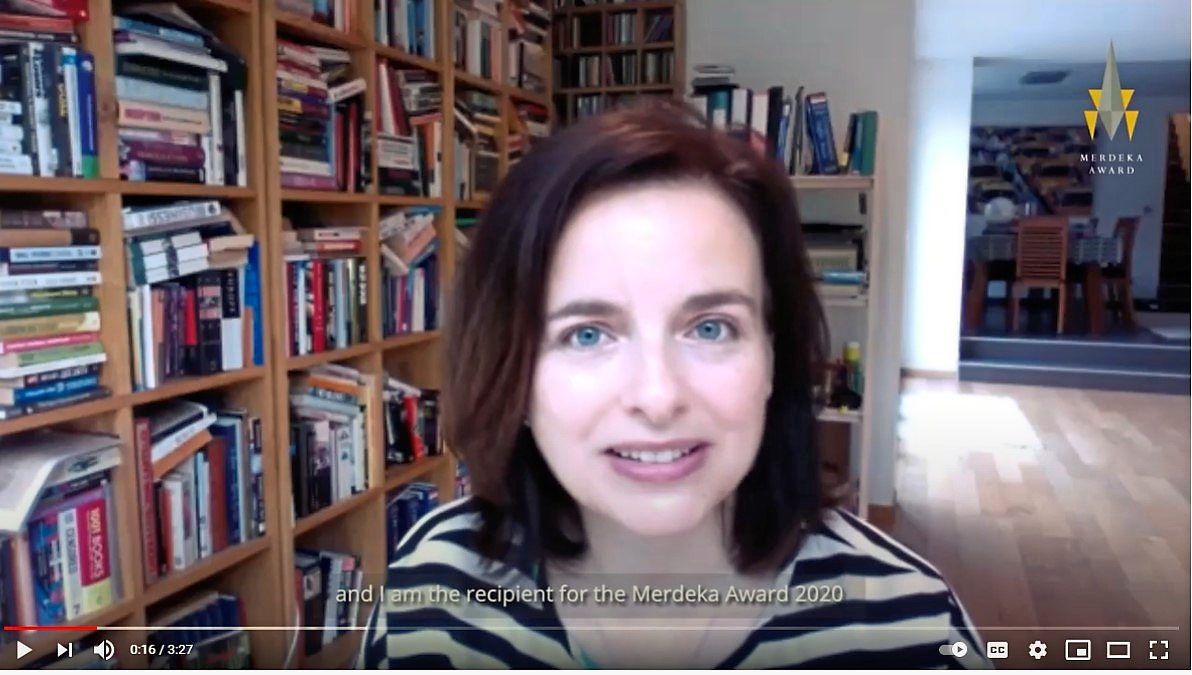 PETALING JAYA: Her unrelenting efforts in reducing food waste by channelling food to the underprivileged has led to Suzanne Mooney (pic) being recognised for her “outstanding contribution to the people of Malaysia”.
PETALING JAYA: Her unrelenting efforts in reducing food waste by channelling food to the underprivileged has led to Suzanne Mooney (pic) being recognised for her “outstanding contribution to the people of Malaysia”.
The founder of The Lost Food Project (TLFP) was announced Thursday as a recipient of the Merdeka Award, which was started in 2007 by Petronas, ExxonMobil and Shell for people who have made lasting contributions to the nation.
She was acknowledged for her effort in saving five million meals to feed the underprivileged, which has prevented the production of more than 2.5 million kg of greenhouse gas emissions.
Born in the United Kingdom where she was a broadcast journalist with the BBC, Mooney came to Malaysia in 2014 with her family.
She got involved in charity work and eventually started TLFP in 2015 to address the food insecurity faced by the less fortunate, while reducing food wastage.
TLFP is a food bank in Malaysia that has contracts with supermarkets, manufacturers and a wholesale market.
It distributes about 50,000 meals a month to over 40 charities, besides composting any donated food unfit for consumption.
Mooney left Malaysia in 2018 when her husband was posted to Switzerland, but volunteers in Malaysia have continued on with the project.
Mooney, who works full-time on TLFP but remotely from Geneva, said: “I am extremely honoured (about the Merdeka Award), although a little embarrassed. It is nice that all our hard work over the last few years has been recognised.
“However, I would stress that this award is due to the hard work of many people.
“TLFP has so many dedicated staff members and volunteers. It is a real privilege to be part of a wonderful team of passionate and committed people, ” she said.
Amid the pandemic, Mooney and her team have persisted in ensuring that the underprivileged continue to have food daily.
“Our work continued throughout the pandemic. In fact, there has been even more demand, it has been so hard for all of us, but it is always the people at the bottom who are most impacted.
“So we need to provide more help. This was a big problem in the beginning because the food supply chain went into free-fall, and the level of surplus food almost disappeared overnight, ” she said when contacted.
During the time, Mooney said the team had to segue into a disaster relief response.
“Now we have slowly moved back into normal operations, although the need is still far higher. So we are very motivated to get onboard more food partners, ” she said.
Mooney urged the public to place a higher value on food and its implications to the environment.
“This means people have to understand the full cost of the food supply chain.
“The financial and environmental cost of the deforestation and farming efforts, the water footprint, the packaging generated as well as the transport needed, ” she said.
She highlighted the high cost of waste disposal, both to the economy and environment.
“Once we truly understand this ‘value’, I hope we will continue to love and enjoy food but be more mindful about throwing away these precious resources as many hungry people in the world could benefit from better redistribution of nutrition, ” she said.
During her time in Malaysia, she also wrote for The Star in a column called “Love Food, Hate Waste” between 2018 and 2019.